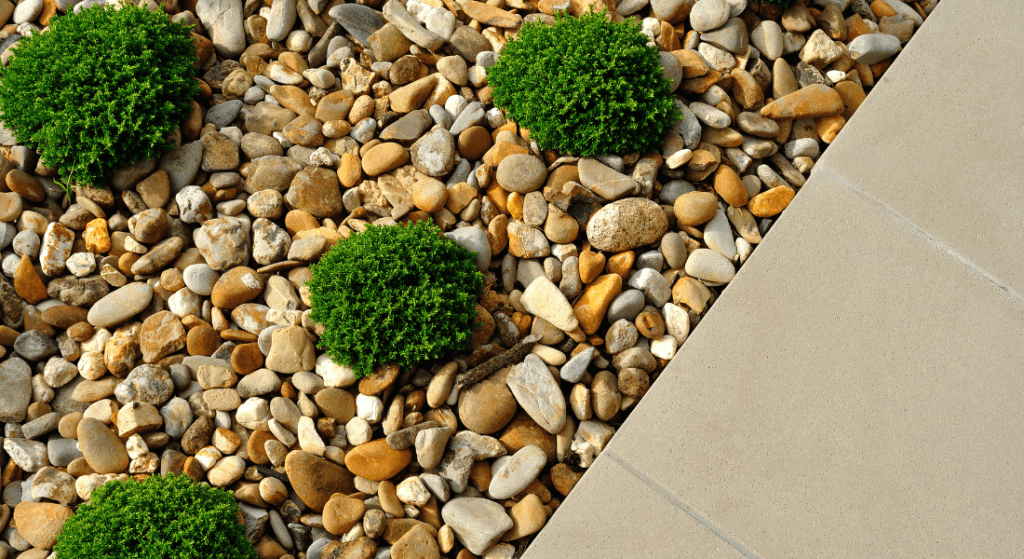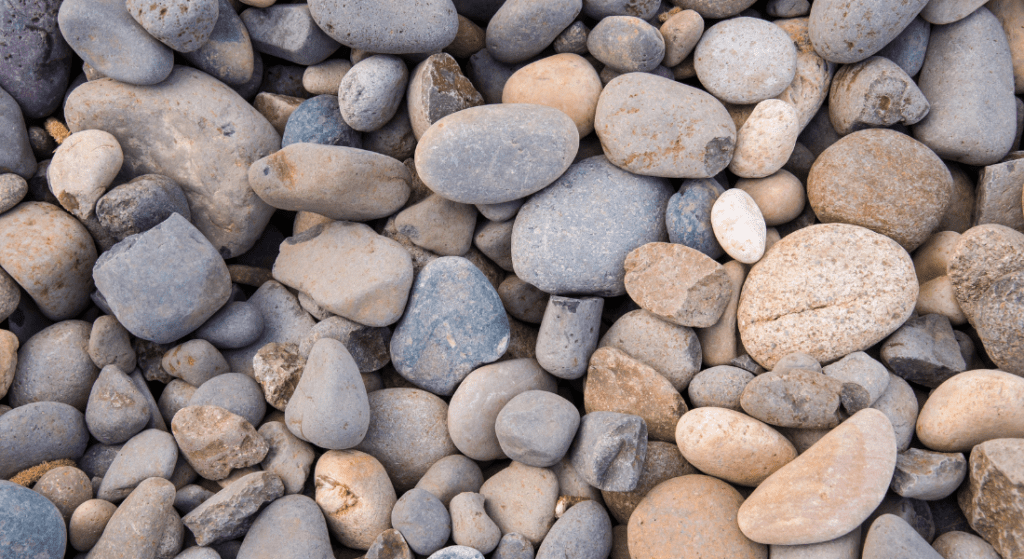Transforming your yard into a stunning rock landscape is a popular choice for homeowners in Clarksville, TN. Using landscape rocks like river rock can add both beauty and practicality to your outdoor space.
But how much does it really cost to install landscape rocks, and is it worth the investment?
This guide breaks down the costs, benefits, and details you need to know about installing landscape rocks in Clarksville. By the end, you’ll have a clear idea of how to plan your landscaping project, save money, and make informed decisions.
Table of Contents
ToggleWhat Are Landscape Rocks, and Why Are They Popular?
Landscape rocks, including river rock and bull rock, are natural stones used to enhance outdoor spaces. They come in various sizes, shapes, and colors to fit any landscaping design.
Using rocks in landscaping offers numerous benefits:
- Low maintenance: Unlike mulch, rocks don’t decompose or need regular replacement.
- Aesthetic appeal: Decorative rock like river stone or Mexican beach pebbles can elevate your landscape design.
- Erosion control: Rocks help prevent soil erosion and improve drainage.
If you’re looking for durable and versatile options, landscape rocks are an excellent choice for your yard.

What Is the Average Cost to Install Landscape Rocks?
The cost to install landscape rocks varies depending on the type of rock, the size of the area, and labor.
Here’s a breakdown of average costs:
- Per square foot: $1 to $5 for materials.
- Per ton: River rock typically costs $50 to $150.
- Labor cost: Around $50 to $100 per hour for professional installation.
For a mid-sized yard, the total cost of landscape rock installation could range from $500 to $2,500.
How Much Does River Rock Cost Per Ton?
River rock is one of the most popular choices for landscape rocks. The cost per ton typically ranges between $50 and $150, depending on:
- Size of the rocks (smaller stones cost more).
- Color and finish (unique or polished stones are pricier).
- Delivery fees from local suppliers.
To determine the total cost of river rock, factor in labor, landscape fabric, and any additional materials.
What Factors Affect the Cost of Landscape Rock Installation?
Several factors influence the cost of installing landscape rocks:
- Type of rock: Lava rock and bull rock are generally more expensive than standard river rock.
- Size of the project: Larger areas require more materials and time, increasing the total cost.
- Delivery distance: Long-distance deliveries can add significant expenses.
- Preparation work: Tasks like removing existing landscaping or grading the area can raise costs.
Understanding these factors will help you create a realistic budget for your landscaping project.

How Does River Rock Compare to Other Rock Types?
River rock is often chosen for its smooth texture and natural look, but how does it stack up against other types?
| Rock Type | Cost Per Ton | Best Uses |
| River Rock | $50–$150 | Gardens, paths, and drainage areas |
| Bull Rock | $100–$200 | Large-scale erosion control |
| Lava Rock | $120–$250 | Decorative accents and fire pits |
| Mexican Beach Pebbles | $500–$800 | High-end design features |
Each type of rock has unique benefits, so choose based on your landscaping needs and budget.
How Much Rock Do You Need for Your Landscaping Project?
Calculating the amount of rock you need is essential for accurate cost estimates.
- Per square foot: One ton of river rock covers about 55 to 135 square feet, depending on depth.
- Per cubic yard: This equals roughly 1.35 tons, ideal for larger areas.
Measure your space and decide the depth of coverage (2–3 inches is common for most projects).
What Are the Labor Costs for Installing Landscape Rocks?
Labor costs depend on the complexity of the project and local rates.
- Basic labor: Installing rocks in a prepared area costs about $50–$150 per hour.
- Additional costs: Tasks like rock removal or grading may add $100–$500 to your total.
Hiring professionals ensures efficient and high-quality results, especially for large or intricate designs.
Can You Save Money by Installing Rocks Yourself?
DIY rock installation can save on labor costs, but consider these factors:
- Time and effort: Moving heavy rocks requires physical work and proper tools.
- Expertise: Professionals can prepare the worksite and install rocks more efficiently.
- Equipment rental: Costs for tools like wheelbarrows or compactors may add up.
For smaller projects, DIY is an option. For larger designs, hiring a pro can be worth the investment.
What Are the Additional Costs to Consider?
Beyond the basic cost of landscape rock, you might face additional expenses:
- Delivery fees: Average $50–$200, depending on the supplier.
- Landscape fabric: Essential for preventing weeds, costing about $0.50–$1 per square foot.
- Drainage solutions: Grading or installing drains can cost $500–$2,000.
These factors could impact the total cost of your landscaping project.
How to Get the Best Value from Landscaping Companies in Clarksville
To maximize your investment:
- Get quotes: Request estimates from several landscaping companies.
- Choose local suppliers: Save on delivery by buying from nearby businesses.
- Plan ahead: Book services during the offseason for lower rates.
- Mix materials: Combining river rocks with other landscaping materials can reduce overall costs.
Working with experienced landscaping companies ensures a smooth process and high-quality results.
Professional Rock Installation in Clarksville, TN
At GreenLife Services, we make your landscaping dreams come true with expert rock installation. From river rock to decorative stones, we create stunning, low-maintenance designs for your outdoor space. Best of all, we offer free quotes to get you started! Let us help you transform your yard today.
Key Takeaways
- Landscape rocks like river rock are versatile, low-maintenance, and visually appealing.
- The cost of river rock varies from $50 to $150 per ton, with additional labor and delivery expenses.
- Consider factors like project size, type of rock, and preparation tasks to estimate your total cost.
- DIY installation saves money but requires effort and tools, while professionals offer efficiency and expertise.
- Get multiple quotes from local suppliers and companies for the best value.
By understanding the costs and options, you can create a beautiful rock landscape that fits your budget and style.
FAQs
Q. How to calculate rock for landscaping?
A. To calculate how much rock you need for landscaping, follow these steps:
- Determine the area: Measure the length and width of the area you want to cover.
- Calculate the square footage: Multiply the length by the width (Length x Width = Square Footage).
- Determine the depth: Decide how deep you want the rock layer (usually 2-3 inches is standard).
- Convert to cubic yards: Divide the square footage by 12 (for 3-inch depth) to get the cubic feet, then divide by 27 to convert cubic feet to cubic yards.
- Formula: (Square Footage x Depth in Inches) ÷ 12 ÷ 27 = Cubic Yards.
Q. How long does landscape rock last?
A. Landscape rocks are highly durable and can last for many years, often decades, depending on the type of rock and the weather conditions. Unlike organic materials like mulch, rocks don’t decompose, so they require little to no maintenance and retain their appearance for a long time.
Q. What are the cons of landscaping rocks?
A. While landscaping rocks are low-maintenance and long-lasting, there are a few downsides:
- Initial Cost: The cost of purchasing and installing landscaping rocks can be higher upfront compared to other materials.
- Weed Growth: Without proper weed barriers underneath, weeds can grow through the rocks.
- Difficult to Change: Rocks are difficult to move or replace once installed, limiting design flexibility.
- Heat Retention: Rocks can absorb and retain heat, making the surrounding area hotter, especially in the summer.
Q. Do you put anything under landscape rocks?
A. Yes, it’s recommended to place a weed barrier fabric under landscaping rocks. This helps prevent weed growth, keeps the rocks in place, and allows water to drain through. A layer of sand or gravel can also be used to improve drainage before placing the fabric.
Q. Are rocks cheaper than mulch?
A. In the short term, mulch tends to be cheaper than rocks, especially for smaller areas. However, rocks are a one-time investment that can last much longer, whereas mulch needs to be replenished regularly. Over time, rocks may prove to be more cost-effective due to their durability and low maintenance.

